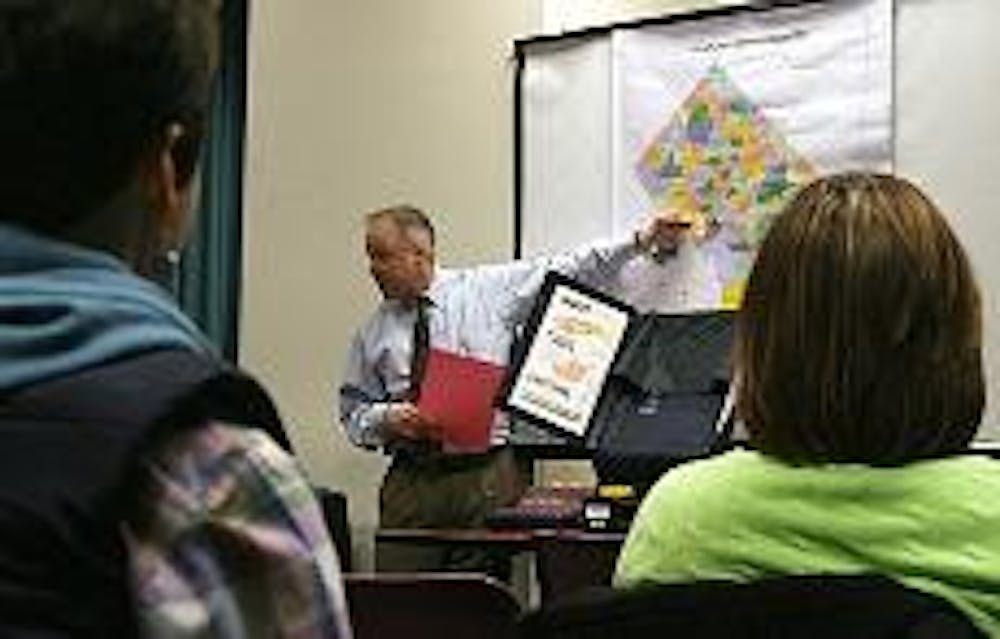Continuing to prove its title as most politically active school in the nation, AU is the only university in D.C. that has recruited students to work at polls for the Nov. 7 midterm elections, and its 104 student workers is the largest number from all universities, said Robert Pastor, director of the Center for Democracy and Election Management and a professor in the School of International Service.
Four training sessions, each three hours long, were held Tuesday and Wednesday, Pastor said. At the sessions, students were instructed on how to work the voting machines and what to do on Election Day.
"American University should be commended for stepping forward to address the largest problem in the electoral system - the lack of trained poll workers," Pastor said. "The conduct of elections is the most important defense of democracy. Poll workers need to be impartial, professional and trained."
Pastor said confidence in the electoral process has steadily declined since 2000.
Pastor, who has studied world elections for 30 years, said there are three problems with the current polling system: the average age of poll workers is 72, elderly workers have limited technological skills and young people participate the least in elections. Only 22 percent of people ages 18 to 24 vote, he said.
This program addresses all three of these problems by getting young people to work the polls. Young people have more stamina, know more about electronic machines and encourage participation of other young people, Pastor said.
Students were trained as poll technicians because only people registered in D.C. can be poll workers, said Bill O'Field, director of public affairs and program development manager at the D.C. Board of Elections and Ethics. Being a technician means working with the machines used in voting, while being a worker means working with the voters themselves.
The city uses both paper ballots and The Edge touch screen machines and added optical scanners in 2002, but because of a lawsuit claiming that the machines discriminated against the blind, they also have touch screen machines.
On Election Day, students must arrive at their polling stations at 6:15 a.m. and then work a 14-hour day until the polls close. They are paid between $120 to $140 for working, O'Field said.
Electronic touch screen machines and paper ballot optical scanners were brought in to train students. Trainees also learned how to deal with problems during the day, such as handicapped voters or people tampering with the machines.
"All voting machines are great until they are used, and then human error occurs," O'Field said.
Demonstrations were also done to simulate special situations and the most common problems that occur during the day, such as blind voters who want to use the audio feature on The Edge voting machine and calibrating the touch screen on The Edge.
Allison Doolittle, a freshman in the School of Communication, said she decided to work at the D.C. polls because a friend told her about it and her high school government teacher encouraged citizen participation.
She said the program has a good goal and AU should be involved and get into the city, especially since the campus is so politically active.
"I think it is easy for us to be disconnected from the rest of the city because we live in Northwest D.C.," she said.
Meredith Eddins, a sophomore in the College of Arts and Sciences, said she decided to work for the money and the "cool" experience. Not only did this program get students involved, but it made young people look good to the community, she said.
This is the first year of the program, but Pastor said he hopes to build up the program and recruit more students for future elections.
"American University is a model for training people to be at the frontline of American democracy," Pastor said.
Eagle Contributing Writer Brittany Schell contributed to this report.





